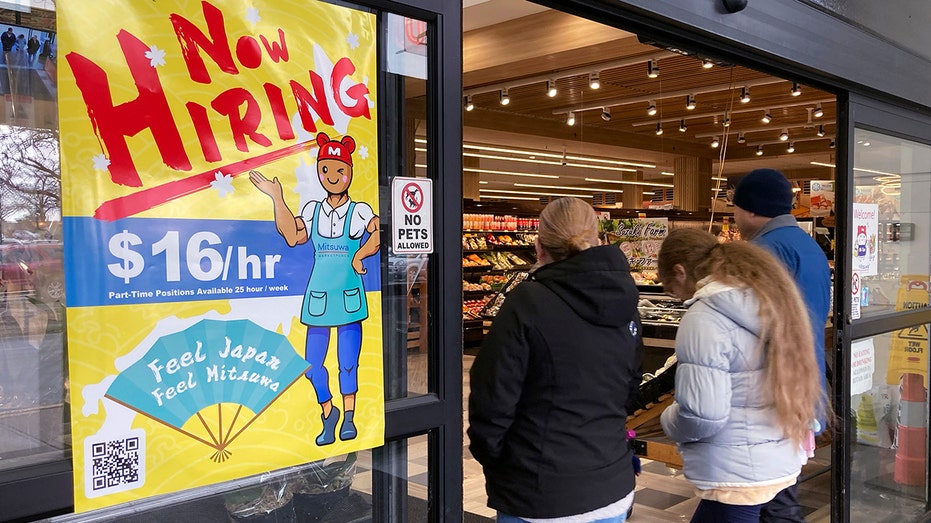U.S. job growth cooled more than expected in October, but solid hiring in health care, construction and the government helped to boost the overall payroll figure.
Employers added 150,000 jobs in October, the Labor Department said in its monthly payroll report released Friday, fewer than the 180,000 jobs forecast by Refinitiv economists.
The unemployment rate, meanwhile, unexpectedly ticked up to 3.9%, the highest level in nearly two years.
US JOB GROWTH COOLS IN OCTOBER TO 150K WHILE UNEMPLOYMENT UNEXPECTEDLY RISES
“The jobs report points to a cooler labor market in October, and not entirely due to the UAW strike,” said Bill Adams, chief economist for Comerica Bank. “Other headwinds restrained job growth in October, too.”
Health care accounted for the biggest payroll gains last month, with the sector adding 58,400 jobs in October. Hospitals accounted for the biggest percentage of the gains, hiring 18,100 workers last month. There were also notable gains in the offices of physicians (12,600), home health care services (9,500) and outpatient care centers (8,100).
Hiring in government was the second-biggest contributor to the headline job gain last month. The sector hired 51,000 employees in October, with the biggest gains in local government education (26,400), which likely captures teachers returning for the start of the school year.
There were also notable gains in the construction sector last month, with payrolls growing by 23,000. Specialty trade contractors saw payrolls grow by 14,200, while employment in building construction increased by 6,300.
WORKERS NOW DEMANDING NEARLY $80K TO START NEW JOB

Hiring increased in other industries, including social assistance (18,800), professional and business services (15,000) and wholesale trade (9,400).
However, many sectors of the economy actually shed jobs or saw hiring fall flat last month. Manufacturing lost 35,000 jobs in October, mostly reflecting the impact of the UAW strike against Ford, Stellantis and General Motors, the Labor Department said in the report.
Employment in information also dropped by 9,000 last month, “reflecting the impact of labor disputes.” The sector has seen payrolls decline by 44,000 since May, when Hollywood writers first went on strike. Actors joined the writers on strike in mid-July.
There were also job losses in transportation, warehousing (12,100) and financial activities (2,000).
Read the full article here








